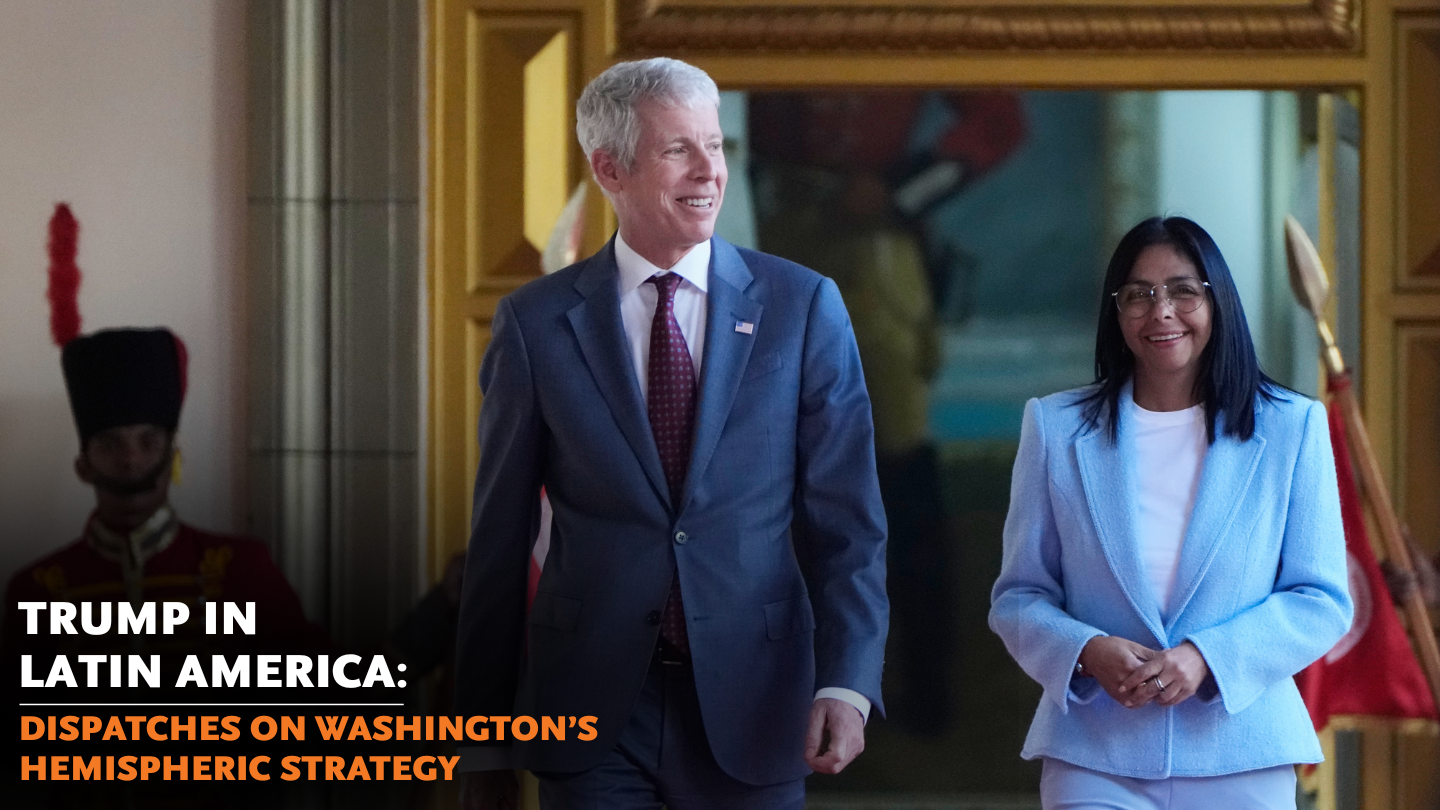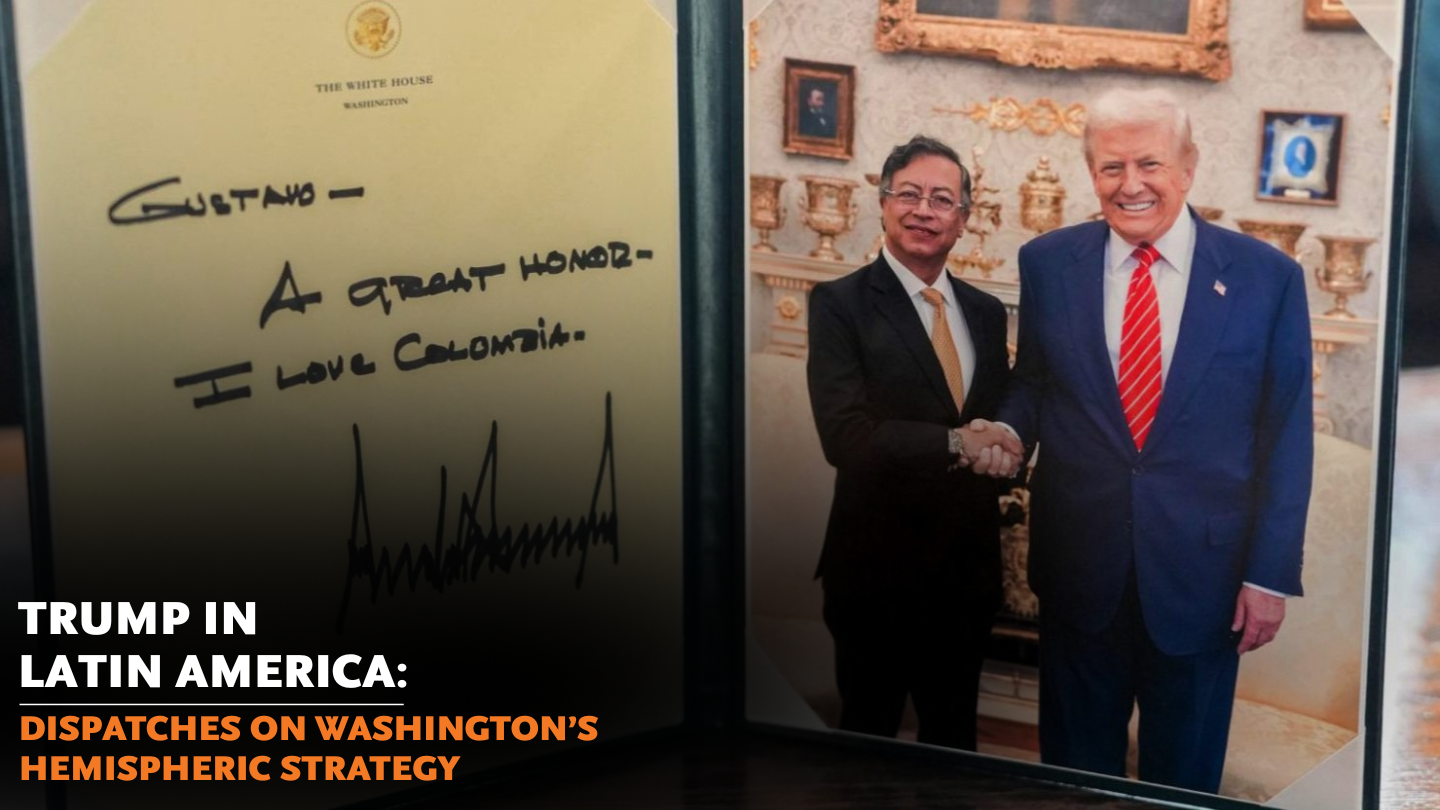One Deal Down, Two to Go
One Deal Down, Two to Go
U.S. and Peruvian heads of state met Friday to sign a a bilateral trade deal. But U.S. Congress remains reluctant to move forward on free-trade pacts with Colombia and Panama. At a recent COA event, Colombian Minister Luis Guillermo Plata emphasized that a trade agreement would support stability and prosperity in his country.
President George Bush meets with his Peruvian counterpart Alan Garcia on Friday to sign a bilateral free-trade agreement. The deal, initially agreed upon by both countries in April 2006, was ratified with overwhelming support in both chambers of the U.S. Congress. With implementation of the U.S.-Peru Trade Promotion Agreement (TPA) underway, attention turns to prospects—and obstacles—to similar pacts with Colombia and Panama.
Although these bilateral deals have met with resistance in Democratic controlled Congress, the Peru TPA won support through inclusion of internationally recognized labor and environmental laws. As the Office of the U.S. Trade Representative points out, the deal prohibits child labor violations outlined in the 1998 ILO Declaration on Fundamental Principles and Rights at Work and requires both sides to fulfill obligations outlined under multilateral environmental agreements.
Yet the Peru deal demonstrated a rift among Democratic ranks, despite House Speaker Nancy Pelosi calling the TPA “a giant step forward” and a large margin of votes in favor of the deal. The House voted 285-132 on November 8, 2007 while the Senate voted 77-18 on December 4, 2007. Senate Democrats supported the bill by 29-17, while House Democrats opposed it 109-116. The controversial nature of the free-trade deals has also divided frontrunners for the Democratic nomination, with Senators Hillary Clinton and Barack Obama voicing support for the Peru pact while Senator John Edwards opposed it.
This division could affect progress for the Colombia and Panama agreements, and no congressional action on either pact is expected before 2007. The Panamanian deal has been stalled by election to country’s National Assembly of Pedro Miguel Gonzalez Pinzon, indicted and cleared in a Panamanian trial for the 1992 shooting of a U.S. army sergeant. In the case of the Colombian deal, Congress has not set a date to vote on the bilateral agreement, despite requests from U.S. business leaders and the Bush administration to move forward. Democrats say they voice resistance to the deal because of violence against labor leaders in Colombia.
However, as Colombian Commerce Minister Luis Guillermo Plata pointed out during a recent COA event at Capitol Hill, Colombia has provided security to protect more than 1,600 union members in 2006, compared with fewer than 90 in 1999. The country has witnessed a marked decrease in violent crime as a whole, with a 50 percent decline in its murder rate, a 90 percent fewer kidnappings, and a 60 percent drop in terrorist activities.
Bush proposed that the free-trade deal could help support the increasingly secure environment in Colombia during a December speech, saying “the biggest fear for stability” in South America “is if the United States Congress rejects the free trade agreement with Colombia.” Retired Army general Barry McCaffrey argued the deal would help decrease unemployment in Colombia by 2 percent, boosting stability by providing "legal, productive employment."
During an October AS/COA event, Under Secretary of State for Political Affairs R. Nicholas Burns called Washington’s pending deal with Bogota “one of the most important means by which we can support Colombia in its success and encourage yet further progress.”








